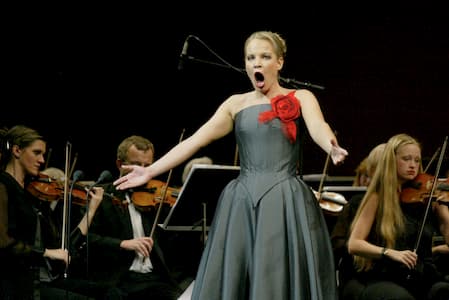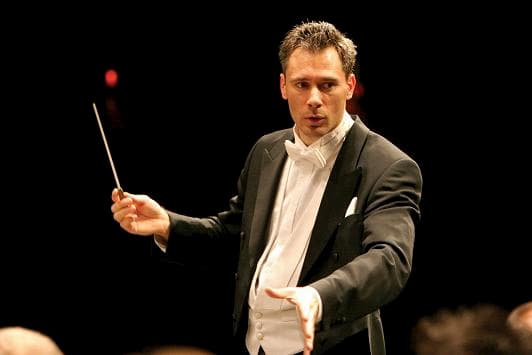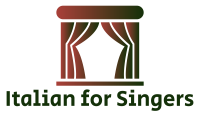Sing like an Italian
Italian Pronunciation Guide for Singers
Do you sing Italian opera?
Do you feel confident about your Italian pronunciation?
Learn how to pronounce Italian lyrics correctly and expressively with the best Italian pronunciation guide for singers.
How to Pronounce Italian lyrics?
The Most Popular Italian Opera Arias
These are the most popular arias from the Italian pronunciation guide for singers.
Opera Librettos Read by an Italian Tenor
The Italian pronunciation guide for singers include whole librettos to get ready for your next performance.
Italian Pronunciation Guide for Singers
Here’s the shortcut to Italian pronunciation for singers – listen and repeat, and improve!
You find plenty of Italian pronunciation guides with notes in English, but no written material can substitute for repeatedly and attentively listening to good spoken and sung Italian.
A sound can’t be pronounced with a book. Relying on English to understand a foreign language slows down the learning process: your brain tries to process vowels and consonants the same way as it does for English, while every vowel and consonant is different.
Learning Italian grammar and vocabulary doesn’t get you far unless you know how to properly pronounce words.
Forget about treatises on vowels, double consonants, phonetics…
With this Italian pronunciation guide for opera singers, I’ll just show you how to pronounce each and every word, phrase, and sentence of the lyrics you need to sing.
You could learn how every letter (vowel or consonant) is pronounced but isn’t it more natural to know how words sound directly from the voice of a native speaker?
A sound alone (vowel, consonant) doesn’t make any sense. Words from lyrics are easier to remember. Sounds should be related to words. This way, you automatically bypass English in pronouncing vowels and consonants.
A sentence is made up of words. A word is made up of vowels and consonants. There’s always one stress in every word, not two. Intonation is important to sound expressive. You should also understand the meaning of every word and link it to its sound.
Our catalog includes the following genres and voice parts:
Online Italian Lessons for Singers
This Italian pronunciation guide for opera singers is excellent for self-study.
However, if you need individual guidance on Italian pronunciation, grammar, and conversation, take online Italian lessons on Skype!
I can provide professional guidance covering:
- Italian pronunciation and diction
- Singing performance and expression
- Italian grammar (to understand lyrics)
- Italian conversation (to study music and live in Italy)
Singing in a foreign language can be very intimidating. You want the sound to be perfect.
However, with patience, love, and one or two online Italian lessons with Stefano, you can learn to sing and sound like an Italian.
If you study operatic singing or classical music, learn from the only Italian tenor who speaks languages!
I’ll show you how the lyrics should be pronounced correctly and expressively. I’ll give you guidance in English only if needed.
Why Italian pronunciation is so important
Technique is central to singing opera, but singing is also an art form, and no art form can be realized by the use of technique alone.
That’s why you also need language skills that you can improve with this Italian pronunciation guide for singers.
Merging voice technique, musicality and emotion through competent acting skill is something that must be learned from the very beginning.
This is because, when occupied in the emotion of the moment, the good voice will acquire nuances that are quintessentially important to conveying the emotional elements of the opera.
This Italian pronunciation guide for singers will thus elevate the singer to a higher level of performance and riveting engagement with the audience.
Language, with correct and expressive pronunciation, takes a performance to a higher level.
When a singer sounds fluent in the language in which they are singing, it’s impressive to audiences.
So when language skills are lacking, it can be a turn-off.
Someone I know recently auditioned at a top opera house and the conductor refused to hear one of her arias after she admitted she wasn’t fluent in Italian.
There are excellent language courses available at home and abroad.
The combination of a few weeks in Italy and a few months at home with online 1-on-1 tutoring would be ideal.
Even if you can’t speak the language like a true polyglot, understanding the grammar, structure and even how the sounds feel in your mouth opens you up to a realm of possibilities (of the tiniest musical nuances) in the sounds you sing.
This Italian pronunciation guide for singers can already help you to improve your pronunciation today.
We live in a culture of quick fixes, instant gratification and the idea that talent is something that simply needs to be discovered and given a chance to shine.
Yes, you need to have a bit of raw ability, but beyond that, hard work, a thick skin, self-reflection and patience – and I mean years of it – are what matter.
Tell yourself there’s a reason that becoming an opera singer is so difficult, because what you are aiming for is extraordinary. If it could be achieved quickly, would it seem so worthwhile?
A crucial element to attaining that longed-for stellar career is finding the right voice teacher – and with their guidance, mastering the technique of singing.
For a young singer, it’s often hard to recognize when a teacher is merely adequate.
Some students frequently continue their studies for years without making progress before they eventually either give up, believing themselves to be the problem, or pluck up the courage to look elsewhere..

Why Italian sound so pleasant to English speakers
I find Italian very similar to English in many respects and I think it is much easier to learn than other European languages.
It is helped by the fact pronunciation is constant (g is always soft like jelly, never hard as granite) and except for a couple of quirks (e.g.”gli”) very similar to English pronunciation of letters.
That’s why you can learn a lot just by listening to this Italian pronunciation guide for singers.
It also flows with rhythm and is almost melodic, many northern European languages are harsh and guttural and despite what the French may think it the most passionate and romantic language I know.
It is well suited to singing because it makes liberal use of vowels instead of consonant clusters, and it has pure vowels ah eh ee oh oo instead of diphthongs.
Even if you don’t understand a word, it sounds as if the weatherman were singing an aria.

Audio Recordings to Learn Italian Pronunciation
This Italian pronunciation guide for singers includes recordings of about 300 opera arias, duets, songs, etc. from various genres such as:
- Ancient arias
- Art songs (lieder)
- Neapolitan songs
- Sacred music
- Opera arias for
- Baritone
- Bass
- Mezzo,
- Soprano,
- Tenor
- Choir
- Whole librettos
This Italian pronunciation guide for singers includes works by composers such as:
- Bellini
- De Curtis
- Donaudy
- Donizetti
- Mozart
- Puccini
- Rossini
- Scarlatti
- Tosti
- Verdi
This Italian pronunciation guide is not only for singers, but also for pianists, conductors, and vocal coaches.
One way to track your progress is to record yourself to check how you sound.

Do you need one-to-one guidance on Skype?
Your Italian teacher Stefano Lodola is ready to help!
Yes, I’m the creator of this italian pronunciation guide for singers!
Learn Italian pronunciation, grammar, conversation… all naturally, while speaking. Learn by examples, not grammar rules. English is kept to a minimum.
One or two classes can already make a difference. If you’re serious about improving, takes at least two classes a week, one hour each.
For self-study, I recommend the Italian language course Ripeti Con Me. Check out my review of Ripeti Con Me.
Do you have any requests or suggestions about this Italian pronunciation guide for singers? Fill in the contact form.
About me
I’m an Italian tenor and language coach.
I put together my expertise in singing and language learning in this Italian pronunciation guide for singers.
My mission is to teach you how to pronounce Italian lyrics correctly and expressively.
Start singing with confidence!
My offer
- Italian Pronunciation Audio Guide for Singers
- Online Italian Lessons for Singers
Information


















